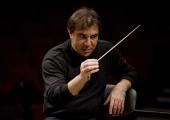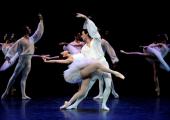theartsdesk in Verbier: Flowers, Cows and Musical Stars

Antipathetic to the Olympics? In the Alps right now is where great music can be found
Can this really be only an afternoon’s travelling away from traffic-choked London? I’m waist-deep in wild blue lupins on a verdant Swiss mountain looking for a concert hall.


 Debussy: Préludes, Trois Nocturnes Prélude à l’après-midi d’une faune Alexei Lubimov (with Alexei Zuev) (ECM)
Debussy: Préludes, Trois Nocturnes Prélude à l’après-midi d’une faune Alexei Lubimov (with Alexei Zuev) (ECM)

 Bach: The Well-Tempered Clavier Book 2 Peter Hill (piano) (Delphian)
Bach: The Well-Tempered Clavier Book 2 Peter Hill (piano) (Delphian)

